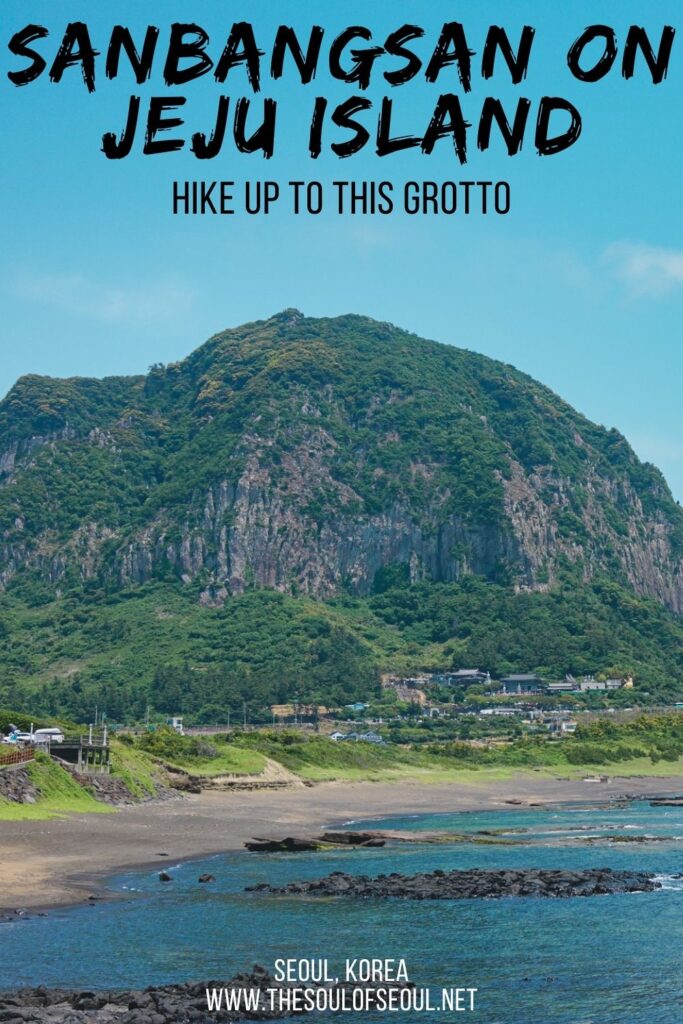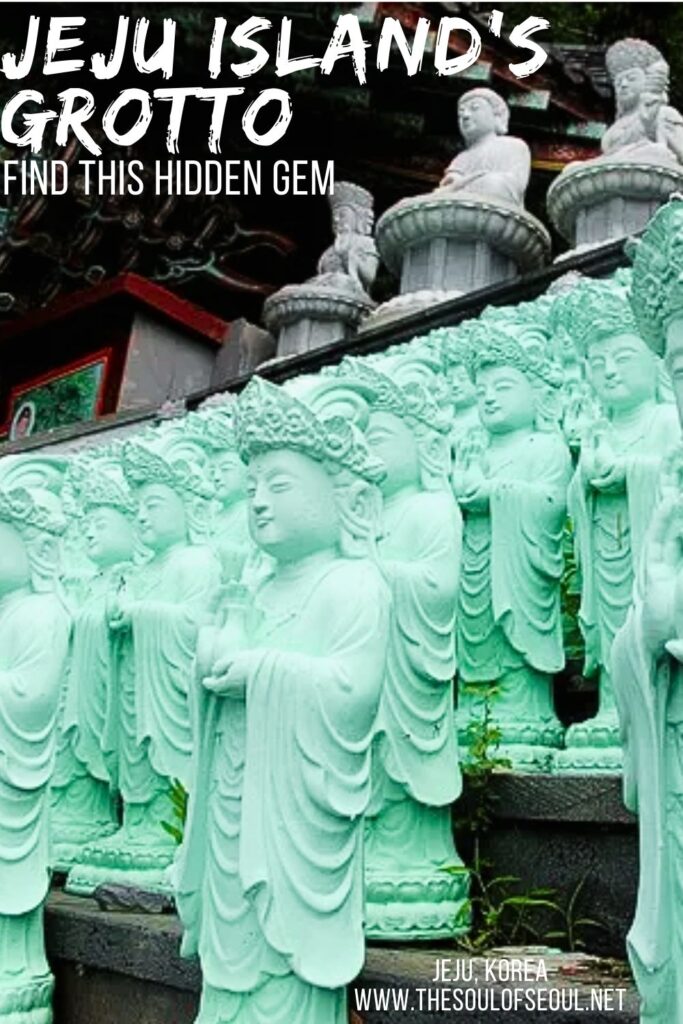Sanbangsan Temple on Jeju Island: A Beautiful Grotto Hike
This mountain was the peak of Mt. Halla before it was broken off and thrown to this spot in the southwest part of Jeju island, at least that’s one of the legends that surrounds the Sanbangsan Mountain (산방산) and the grotto that’s there.
If you’re creating a Jeju Island itinerary, this is a beautiful and easy to walk mountain on Jeju Island you should visit. It’s a great place to visit if you’re staying in Seogwipo City or in the southern part of Jeju Island. It has gotten more popular in Jeju in recent years thanks to flower blooming in nearby fields. Keep reading to find out why you should visit Sanbangsan when you travel to Jeju Island in Korea.
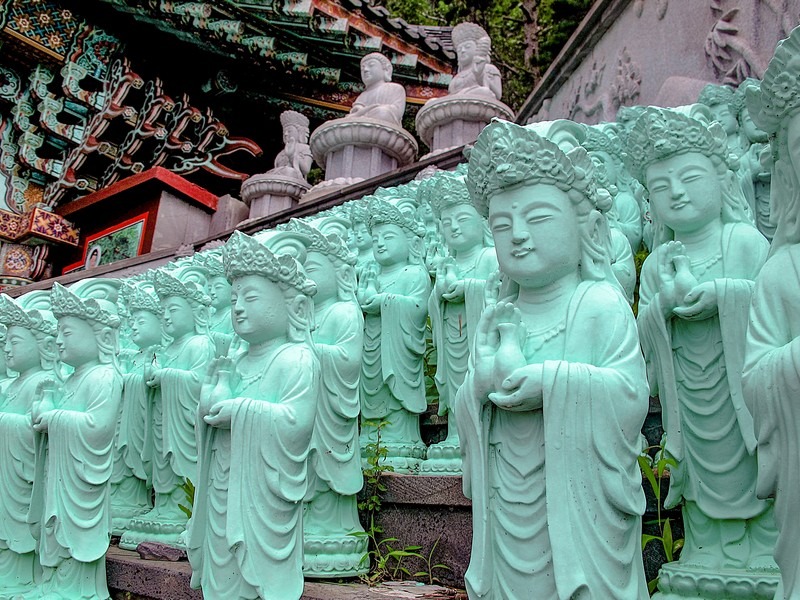
Skip around, get the info and plan your trip now!
- How To Get To Jeju
- How To Get To Sanbang Grotto
- Basic Information
- The Legend Of Sanbang Mountain
- What You’ll See
(This page contains affiliate links. That means if you click on them and purchase something, I will get a percentage of the transaction at no cost to you. Thanks for the support!)
How To Get To Jeju
Take A Flight: To get to Jeju Island, you’ll likely fly in from Gimpo Airport or Incheon Airport on mainland Korea down to Jeju International Airport. Though if you’re in the region, you could fly in from another airport as well. Check out Skyscanner.com for the best rates.
How To Get To Sanbang Grotto
Address: 184 Sagye-ri Andeok-myeon Seogwipo-si, Jeju (제주특별자치도 서귀포시 안덕면 사계리 184)
Jeju Island is NOT the easiest to get around if you’re trying to travel via public transportation. This is why choosing where you want to stay in Jeju and what you want to see before you go is oh so important. It’s easy to get to, but once you’re there, you’ll probably want to rent a car if you want to see and do more. If you don’t plan on renting a car, make sure you stay near the sites you want to see because buses are few and far between and you could potentially spend a ton of time just waiting.
Rent A Car: Renting does not have to be a hassle. If you don’t want to go directly with a local shop, check out Klook which offers a great deal on rental cars and works really well for tourists. It’s fast and efficient and you’ll land and be on the road in no time. For more information and options, learn more in this guide to how to rent a car in Jeju.
Airport Transfer: If you won’t be renting a car, make sure to plan your airport transfer. If you’re headed somewhere in Jeju City, you can book a transfer here. If you’re headed to the Seogwipo area, you can book a transfer here.
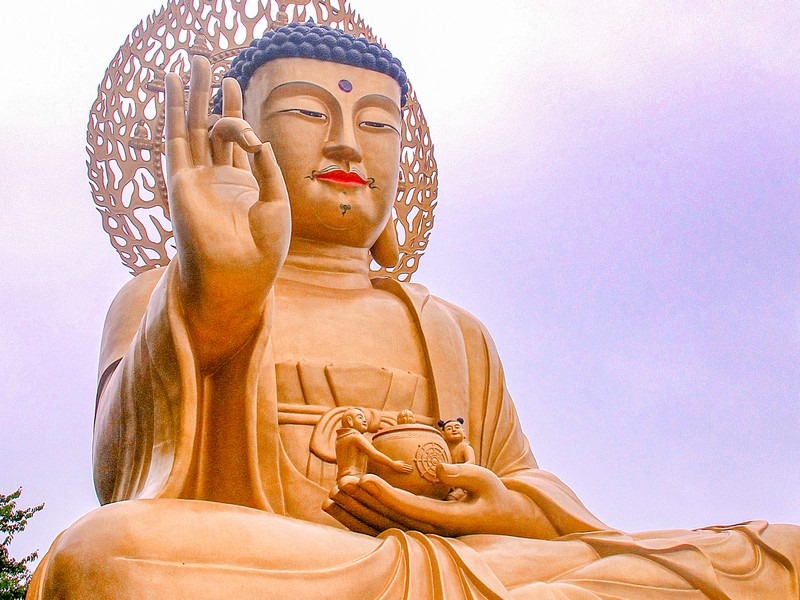
Basic Information
Hours: sunrise – sunset
Admission: W1,000 ~ W2,500; the admission ranges as you can buy tickets for just the grotto or you can buy a mini package deal ticket which includes other stops in the vicinity.
Amenities: bathrooms, souvenir shops, parking, convenience stores and cafes
The Legend Of Sanbang Mountain
The legend starts off with a mighty hunter who was hunting at the peak of Halla mountain, the tallest mountain in Korea. While shooting arrows at the white deer before him, the hunter missed and hit the Halla spirit in the rear-end. Angry and in pain, the Halla spirit ripped the peak of the mountain off and threw it at the hunter. It fell to the coast and killed the hunter beneath it.
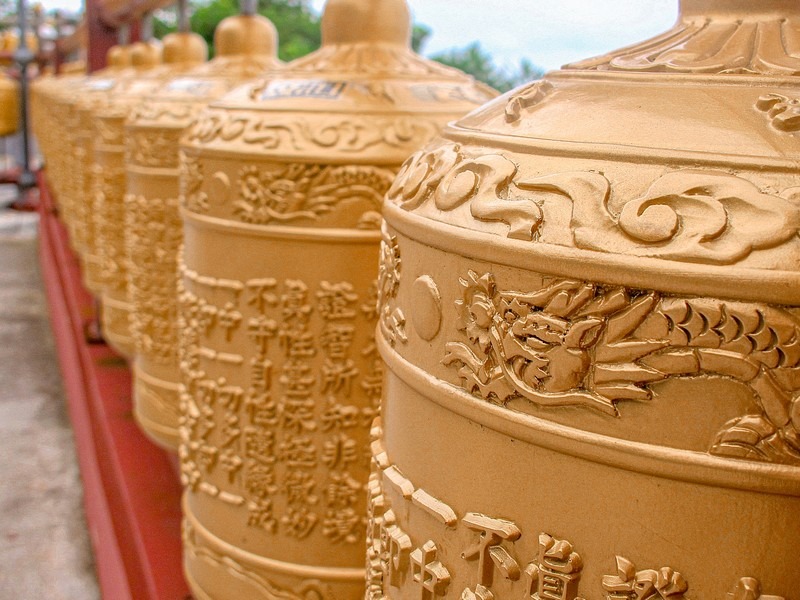
It doesn’t end there though, the hunter was then reborn as the female spirit of the mountain made by the top of the Halla that had been thrown. This mountain, Sanbang Mountain, unlike the others on the island, doesn’t have a crater at the top, hence the legend.
I guess that means if you want to climb Halla Mountain but want the easier time of it, maybe you should climb up Sanbangsan Mountain. You’ll be able to reach the peak of Halla this way!… If you believe in the legends.
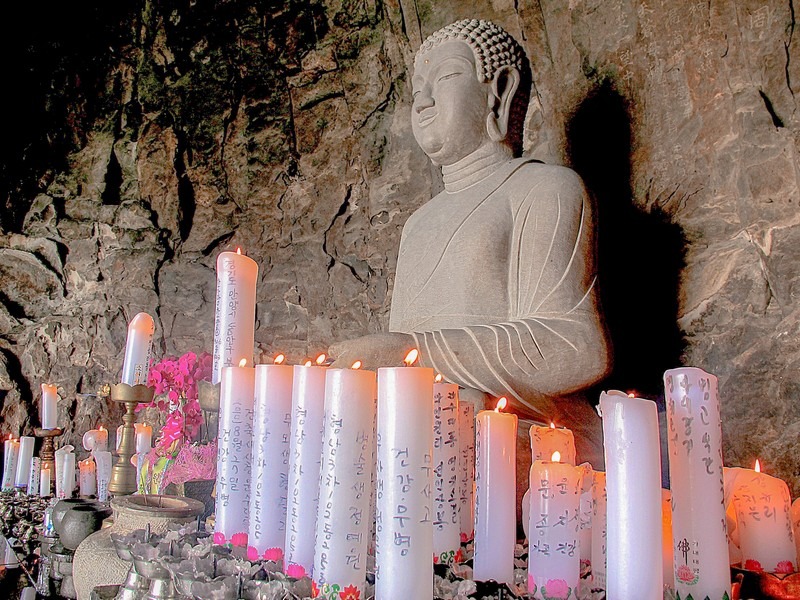
Another, more romantic, legend surrounding the mountain is centered on the goddess Sanbandeok, the beautiful daughter of Sanbangsan. She fell in love with a mortal boy named Goseong but an official of the village in which Goseong lived would not have it and he wanted Sanbandeok for himself so, he banished Goseong and took his possessions. Taken over by grief and mourning, the goddess went to her mountainside cave and turned to stone to mourn the loss of her love until this day.
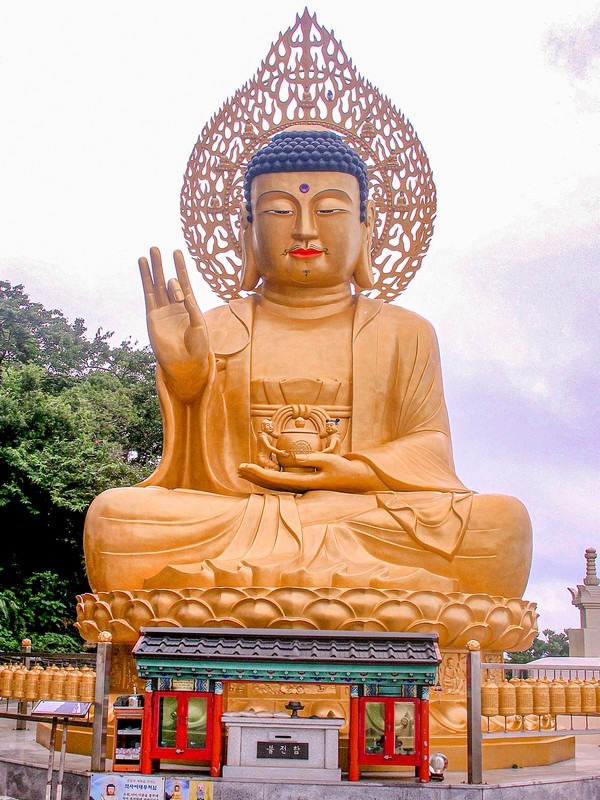
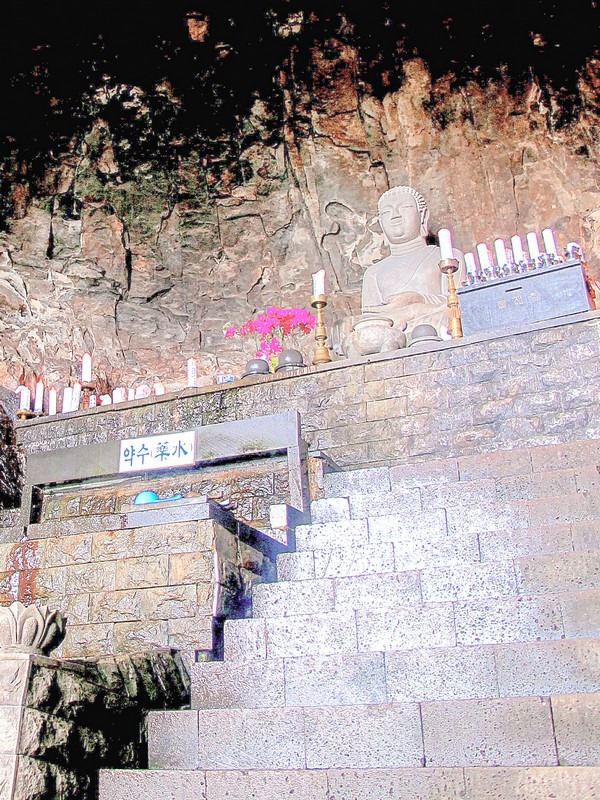
Water that drips from the top of the cave to a pool below is said to be the tears from the goddess and visitors are welcomed to drink the tears and say a prayer for the good health of their family, something that she had always wished for. Now, her cave is shared with a statue of the Buddha and a woman that chants the Buddhist sutras day in and day out. It is said that the visitors to the grotto should visit again and again and upon doing so they will find that they see different images in the stone that sits behind the seated Buddha statue.
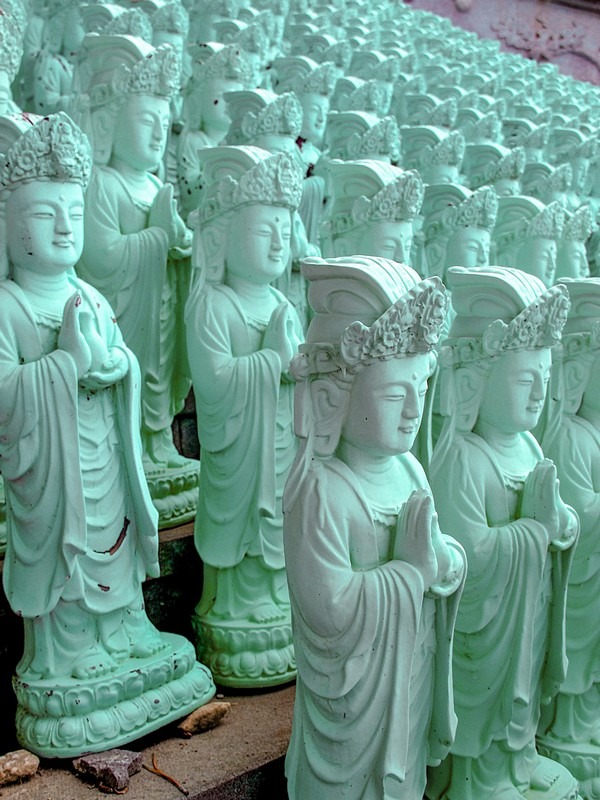
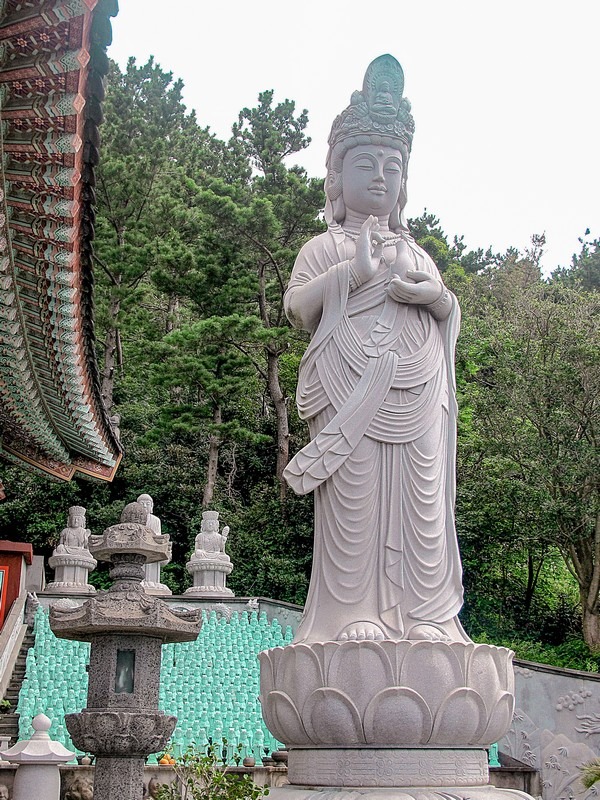
What You’ll See
The more scientific information explains that the 395 meter high Sanbang mountain was formed by volcanic activity some 700,000 to 800,000 years ago and is actually a large body of lava. The name of the mountain can be translated to mean ‘a cave inside a mountain’ which makes sense because the sides of the rock are spotted with numerous caves and cavities produced by the weather over the years.
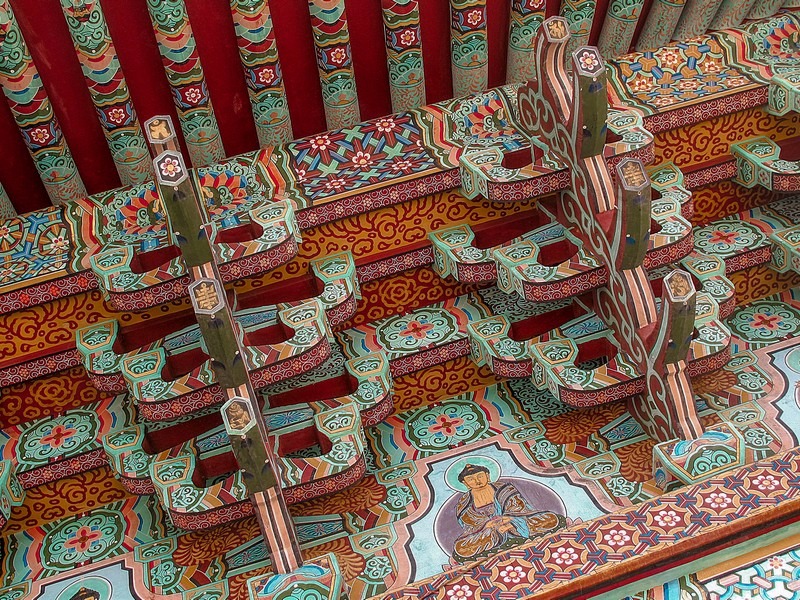
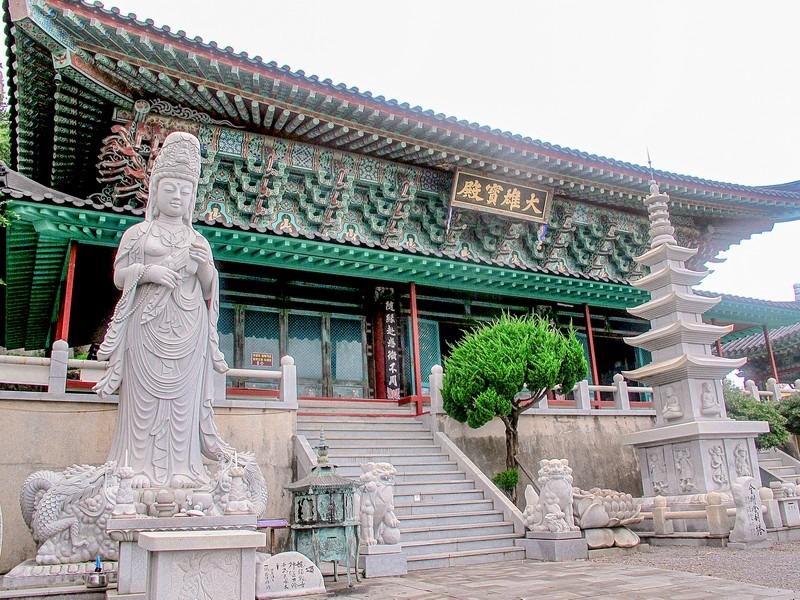
This was definitely one of the biggest highlights for me while visiting Jeju Island. There’s history, culture, and folklore. In 1995 UNESCO recognized Sanbang Grotto and added it to the World Natural Heritage Sites list. This is also an easy stop to make if you’re headed to Yongmeori Beach where you can get a bite to eat and some ice cream.
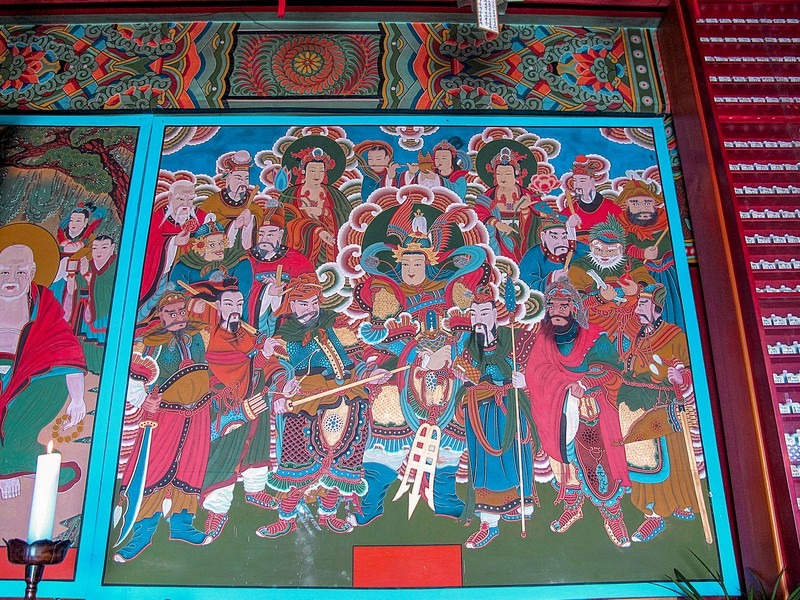
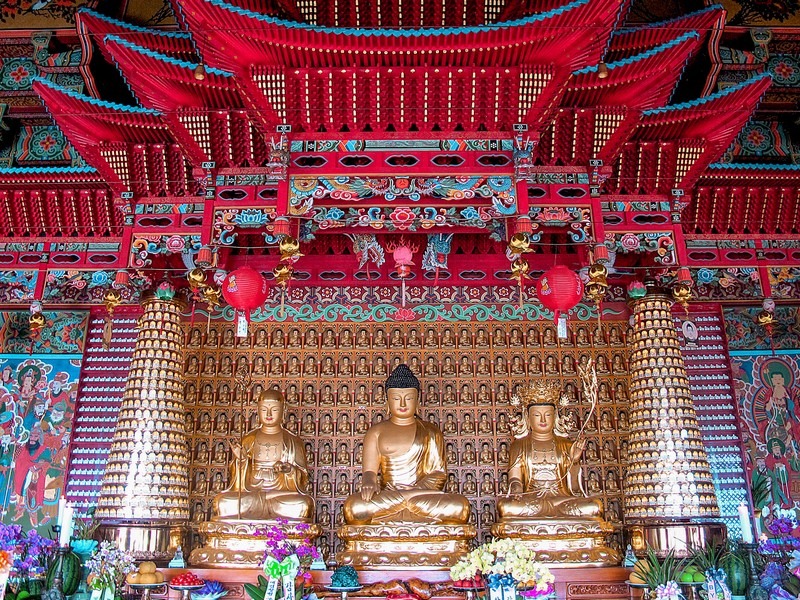
At the foot of Sanbangsan mountain sit Sanbangsa Temple and Bomunsa Temple which welcome visitors to step up and enjoy their beautifully painted walls and statues before beginning the steep climb up to the grotto in the mountain above. The walk up may take only 20 minutes or so, but it’s a climb and in the heat of the summer, it’s a wet climb. There are altars and places to stop along the path up periodically to take a rest before reaching the site that everyone comes to see, Sanbang Grotto (산방굴사).
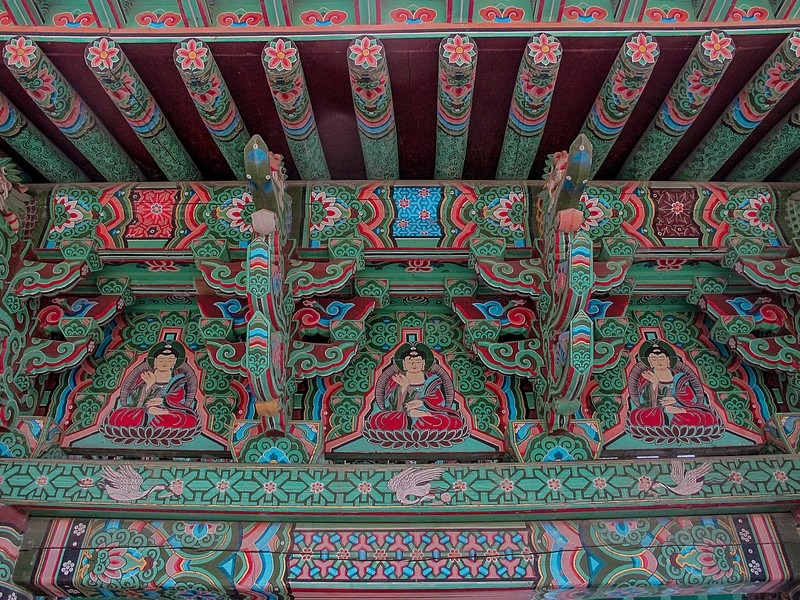
The entire place from the foot of the mountain with two temples to halfway up the mountain to the grotto is a must see on any adventure in Jeju. Natural beauty, colorful cultural and religious relics and breathtaking views of the beaches and islands below are just some of the perks of this stop on the island.
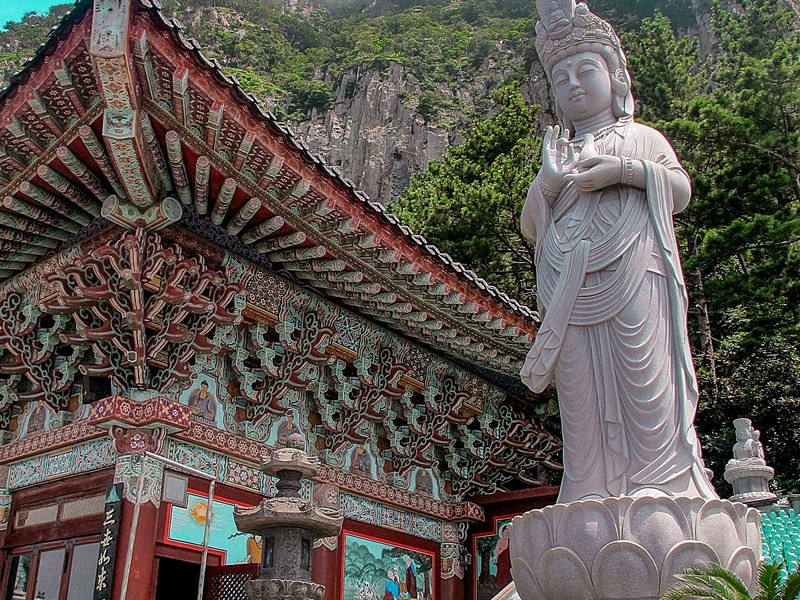
If you want to get around and not be the driver or the navigator, join a tour so you can see a ton and have some fun. Klook has some awesome tours and break Jeju in different regions so you can get a great grasp of where you are. Check them out to see what you might want to see.
DAY TRIPS & TOURS:
- Western Island Exploration with Klook: This day tour includes stops at Hyupae Beach, Hallim Park, O’Sulloc Green Tea Fields, Mt. Sanbang and the Cheonjeyeon Waterfall.
- Eastern Jeju Discovery with Klook: This day tour includes horse riding, a stop at the Seongeup Folk Village, the Seongsan Sunrise Peak, a chance to see the famous Hanyeo women divers on the island and a trip down Jongdalri Shore Road to the Manjang Cave.
- Southern Jeju Adventure with Klook: Head up to see Halla Mountain the tallest mountain in Korea, then on to Alive Museum, Jusangjeolli Cliff, then on to Yackcheon Temple and the huge Jeongbang Waterfall.
Jeju Island is known for some amazing views and this is definitely one of them and it should be on must see lists. Some other popular stops include the green tea fields of O’Sulloc and an awesome off the beaten trip should also include a boat out to nearby Gapa Island where you can rent bikes and see the entire beautiful place and the amazing coastal views at Yongmeori and don’t forget the gorgeous Jeongbang Waterfall that is the only waterfall in Asia to fall straight into the ocean, and Yakcheonsa Temple with 80,000 Buddha statues.
Did you like this post? Pin It!
